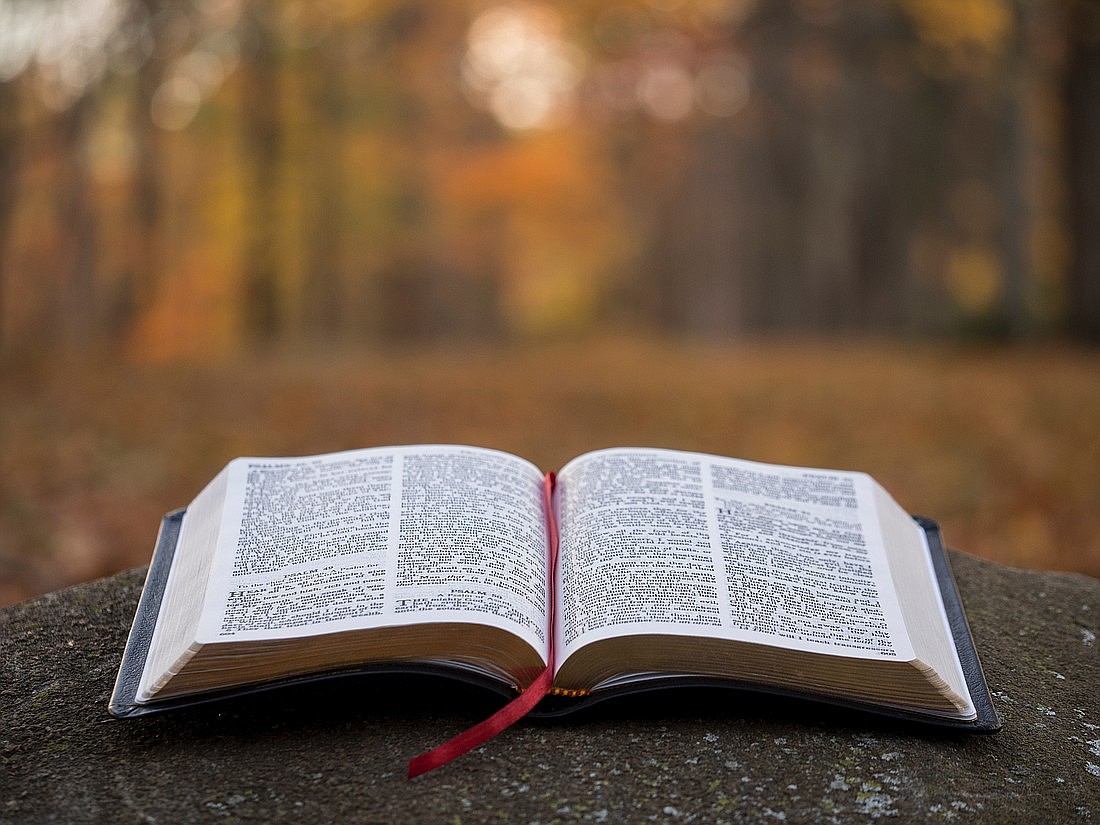November 5, 2024 at 9:40 a.m.
The great covenant of redemption!
Jesus came to break the chains of sin and death and to reorder the world. Prior to Jesus, humanity kept repeating the same actions over and over again with the same results. When Jesus is at the temple with his disciples, he witnesses the same behaviors repeated over and over again.
She went away and did as Elijah had told her. So there was food every day for Elijah and for the woman and her family. — 1 Kings 17:15
People came in to purchase sacrifices for burnt offerings in hopes that they would atone for their sins and not repeat the actions of their ancestors. These sacrifices of a lamb or goat, and for those who could not afford better, a pair of doves or pigeons, were given as a burnt offering. The burnt offerings did not matter to the Lord, it was faith that mattered. He witnessed rich and poor alike contribute to the temple treasury. He sat across from the temple treasury “and observed how the crowd put money into the treasury. Many rich people put large sums into the treasury. A poor widow also came and put in two small coins worth a few cents” (Mark 12:38-44). From her poverty, the poor widow gave not expecting a different result, rather she gave not expecting anything in return. Her contribution would secure for her a different result: eternal justice and satisfaction.
The widow of Zarephath, in the same way, welcomes the Prophet Elijah to share her food even though she has nothing to offer him. Even still she shows the prophet hospitality because she was a woman of faith. The little she had, she was willing to share with the prophet. “Please bring me a small cupful of water to drink.” She left to get it, and he called out after her, “Please bring along a bit of bread.” She answered, “As the Lord, your God lives, I have nothing baked; there is only a handful of flour in my jar and a little bit of oil in my jug” (1 Kings 17:10-16). What she had was enough for one more meal for the widow and her son, the prophet told her not to be afraid and to go and prepare the meal. She does not simply accept her difficult situation, she faithfully follows the prophet’s instructions, and through the prophet’s blessing, she breaks the chains of poverty and death.
Jesus is the only one who can break the chains of sin and death once and for all through his sacrifice on the cross. “Just as it is appointed that human beings die once, and after this judgment, so also Christ, offered once to take away the sins of many, will appear a second time, not to take away sin but to bring salvation to those who eagerly await him” (Heb.9:28). Jesus Christ is the great high priest who offers himself as a gift and sacrifice; he is the mediator of this great new covenant. He is the priest, the altar, and the sacrifice. Through his blood being shed on the cross we have been redeemed. Jesus entered into a sanctuary not made by hands but rather one that is eternal in heaven, “Christ did not enter into a sanctuary made by hands, a copy of the true one, but heaven itself, that he might now appear before God on our behalf” (Heb. 9:24). As the mediator of this great covenant of redemption, through Jesus’ sacrifice on the cross, he breaks the chains of sin and death. This once-and-for-all sacrifice of Christ on the cross is not an event that happened in the past, this great covenant of redemption continually unfolds for us and is made present each time we join in the holy sacrifice of the Mass. Through the celebration of the Mass, we receive the risen Lord, Jesus Christ the great high priest in the Holy Eucharist, and like the widow of Zarephath and the poor widow from the Gospel we are provided for in the receiving of the Body and Blood of Our Lord Jesus Christ.
The great covenant of redemption has been secured through the pouring forth of Jesus’ blood on the cross. This is the fulfillment of the promise God made through the prophets of the Hebrew Scriptures. The widow of Zarephath from the First Reading is counted among the oppressed and hungry. The poor widow from the Gospel of Mark represents the poor of Israel who long for justice. We are the recipients of this great covenant of redemption, we are counted among the oppressed, the hungry and those who seek justice and we eagerly await our salvation. As the Beatitude reminds us, “Blessed are those who hunger and thirst for righteousness, they shall be filled” (Mt.5:6).
- Tanzania’s Cardinal Pengo remembered as giant of faith, a ‘towering presence’ for Africa
- Bishops urge prudence, prayer, invoke Guadalupe’s protection as violence erupts in Mexico
- St. Francis’ relics open to public for first extended veneration in 800 years
- ‘We will grow in wisdom, holiness together,’ new bishop of Tucson, Ariz., tells faithful
- Pope renews ‘heartfelt appeal’ for ‘immediate ceasefire’ in Russia-Ukraine war
- Full text: Pope Leo XIV’s Angelus address given February 22, 2026
- God offers new possibilities, not prohibitions, with his invitation to love, pope says
- Find comfort, strength in Eucharist, pope tells attendees at LA Religious Education Congress
- Pope Leo XIV tells priests not to use AI to write homilies or seek ‘likes’ on TikTok
- Historical novel pitches Christian compassion against ideologies of hatred








Comments:
You must login to comment.